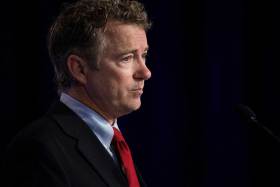
Subscriber content preview. or Sign In
Can he fix what ails the GOP?
The tattooed and pierced longhairs never showed up to see Senator Rand Paul speak with students at the University of South Carolina in Columbia last month. Those in attendance drew instead from the preppy set, with brushed bangs, blue blazers and proper hemlines, some wearing sunglasses on neck straps like jock jewelry. They mostly hailed from college Republican circles, and the room where they gathered, a wood-stained memorial to the state’s old power structure, was named for the politician who led the fight to protect school segregation in the 1960s.
You could call them activists, even rebels in their way. But this was not a gathering of losers and outcasts. Paul knew this. And that was the whole point he…





